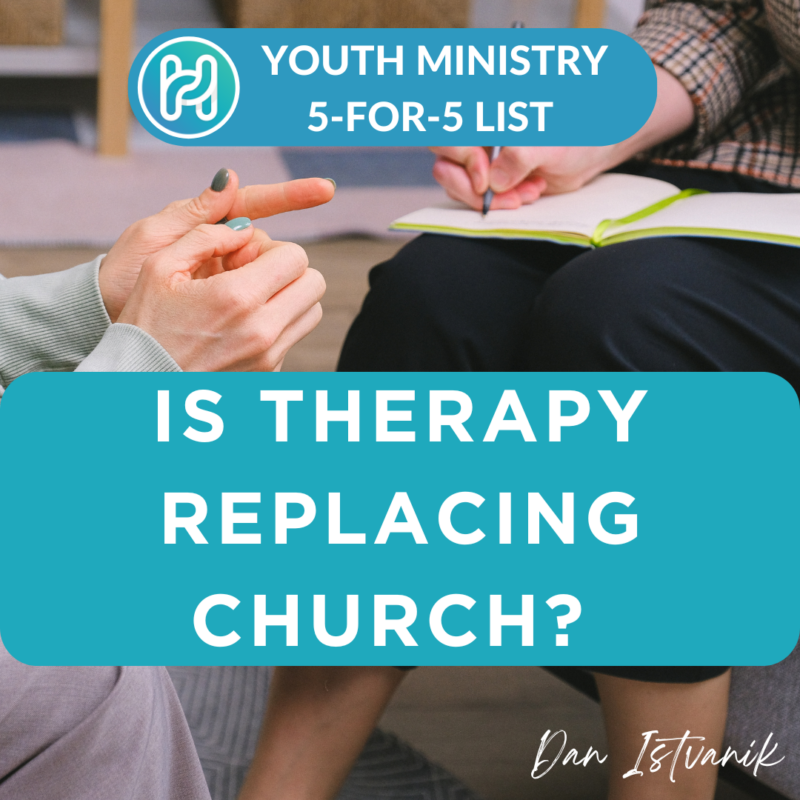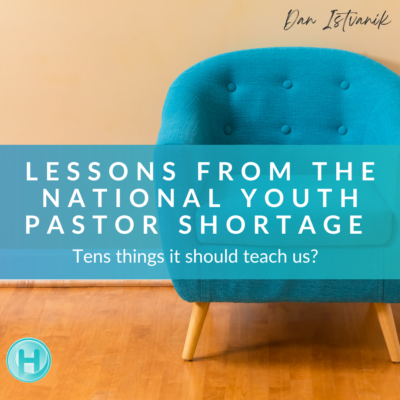Youth Ministry Thoughts
Is Therapy Replacing Church?
- IS THERAPY REPLACING CHURCH? This is not a critique or a negative comment about therapy (counseling, psychology, psychiatry). It is simply a few thoughts and questions as we face a changing generation of students, with a rising percentage (28%) of them in some type of therapy.
FIVE WAYS (IF WE ARE NOT CAREFUL) THERAPY IS REPLACING CHURCH WITH STUDENTS:
1. Community Support:
Therapy groups often provide a sense of community similar to what one might find in a church congregation. Sharing experiences, receiving support, and feeling understood can replicate the sense of belonging and fellowship found in religious communities.
2. Guidance and Mentorship
Just as religious leaders offer guidance and mentorship, therapists provide support and advice in navigating life’s challenges. They can serve as a source of wisdom and offer tools for personal growth and development.
3. Existential Questions
Therapy sessions frequently delve into existential questions about purpose, meaning, and values, similar to the discussions in religious settings. Clients explore their beliefs, values, and identity, seeking a deeper understanding of themselves and their place in the world.
4. Rituals and Practices:
While not necessarily religious, therapy may involve rituals and practices that provide structure and a sense of continuity. These could include regular sessions, journaling, mindfulness exercises, or specific therapeutic techniques aimed at fostering personal growth and healing.
5. Healing and Redemption:
Like religious practices, therapy often focuses on healing and redemption, offering a path toward emotional, psychological, and spiritual well-being. Clients may seek therapy to address past traumas, reconcile relationships, or find forgiveness, mirroring themes of redemption found in religious teachings.
5 SIMPLE QUESTIONS:
- How many of your students would miss a therapy session to ensure they didn’t miss youth group or Sunday service?
- How many students/adults would not attend a therapy session because they were too tired, had a busy week, or because of a sport or extra-curricular activity? How many would never (have never) missed a therapy session?
- How many therapists do your students and families see who are actually Christian or Biblical?
- Are your students and families’ therapists more respected and trusted than their pastors?
- If your students and families were honest, would they say that they get more out of their weekly therapy than they do out of your church/ministry?




